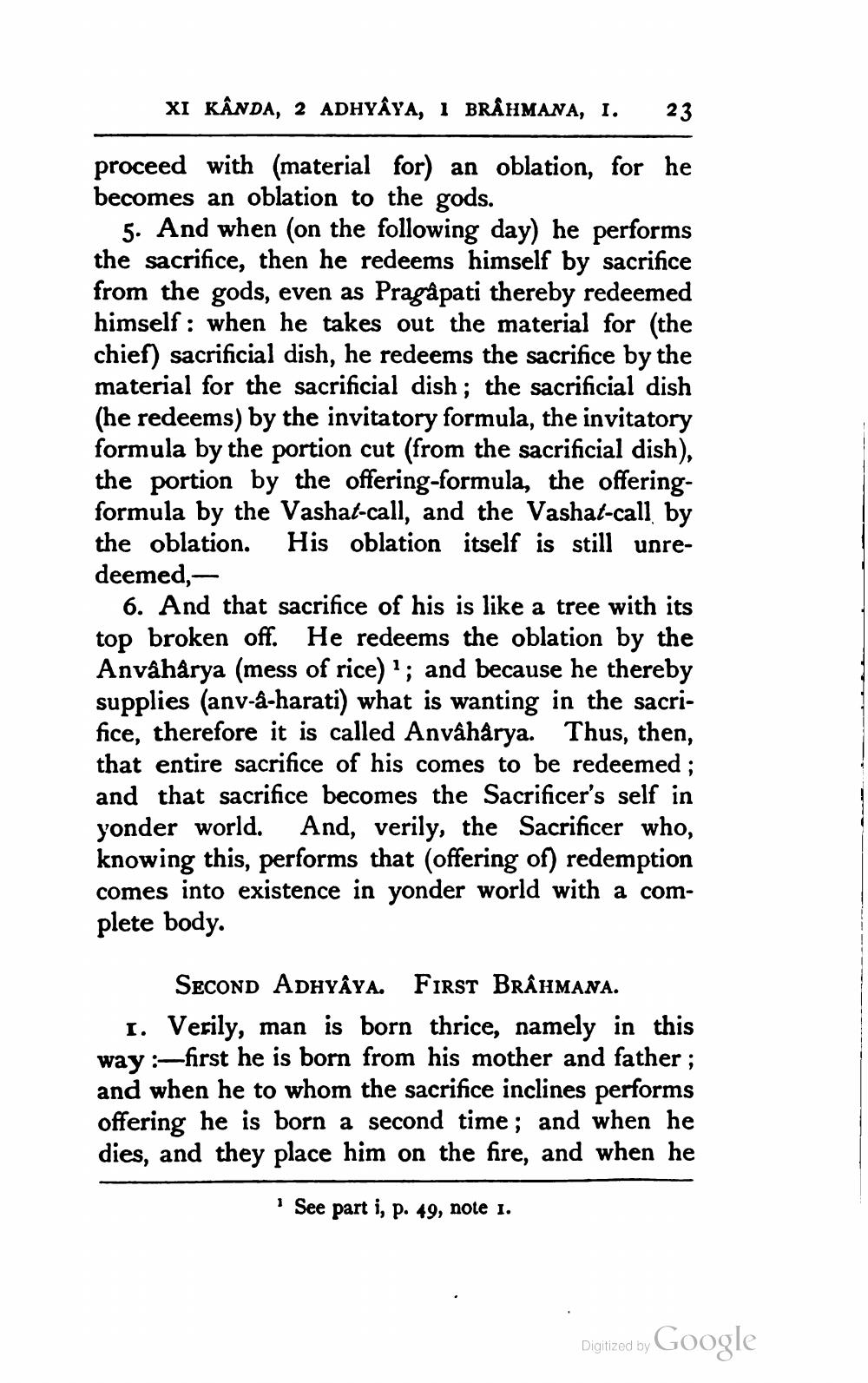________________
XI KÂNDA, 2 ADHYAYA, 1 BRÂHMANA, 1.
23
proceed with (material for) an oblation, for he becomes an oblation to the gods.
5. And when (on the following day) he performs the sacrifice, then he redeems himself by sacrifice from the gods, even as Pragâpati thereby redeemed himself : when he takes out the material for (the chief) sacrificial dish, he redeems the sacrifice by the material for the sacrificial dish; the sacrificial dish (he redeems) by the invitatory formula, the invitatory formula by the portion cut (from the sacrificial dish), the portion by the offering-formula, the offeringformula by the Vashat-call, and the Vashat-call by the oblation. His oblation itself is still unredeemed, -
6. And that sacrifice of his is like a tree with its top broken off. He redeems the oblation by the Anvähårya (mess of rice) ?; and because he thereby supplies (anv-a-harati) what is wanting in the sacrifice, therefore it is called Anvähårya. Thus, then, that entire sacrifice of his comes to be redeemed; and that sacrifice becomes the Sacrificer's self in yonder world. And, verily, the Sacrificer who, knowing this, performs that (offering of) redemption comes into existence in yonder world with a complete body.
Second ADHYÂYA. FIRST BRAHMANA. 1. Verily, man is born thrice, namely in this way :-first he is born from his mother and father ; and when he to whom the sacrifice inclines performs offering he is born a second time; and when he dies, and they place him on the fire, and when he
See part i, p. 49, note i.
Digitized by Google




